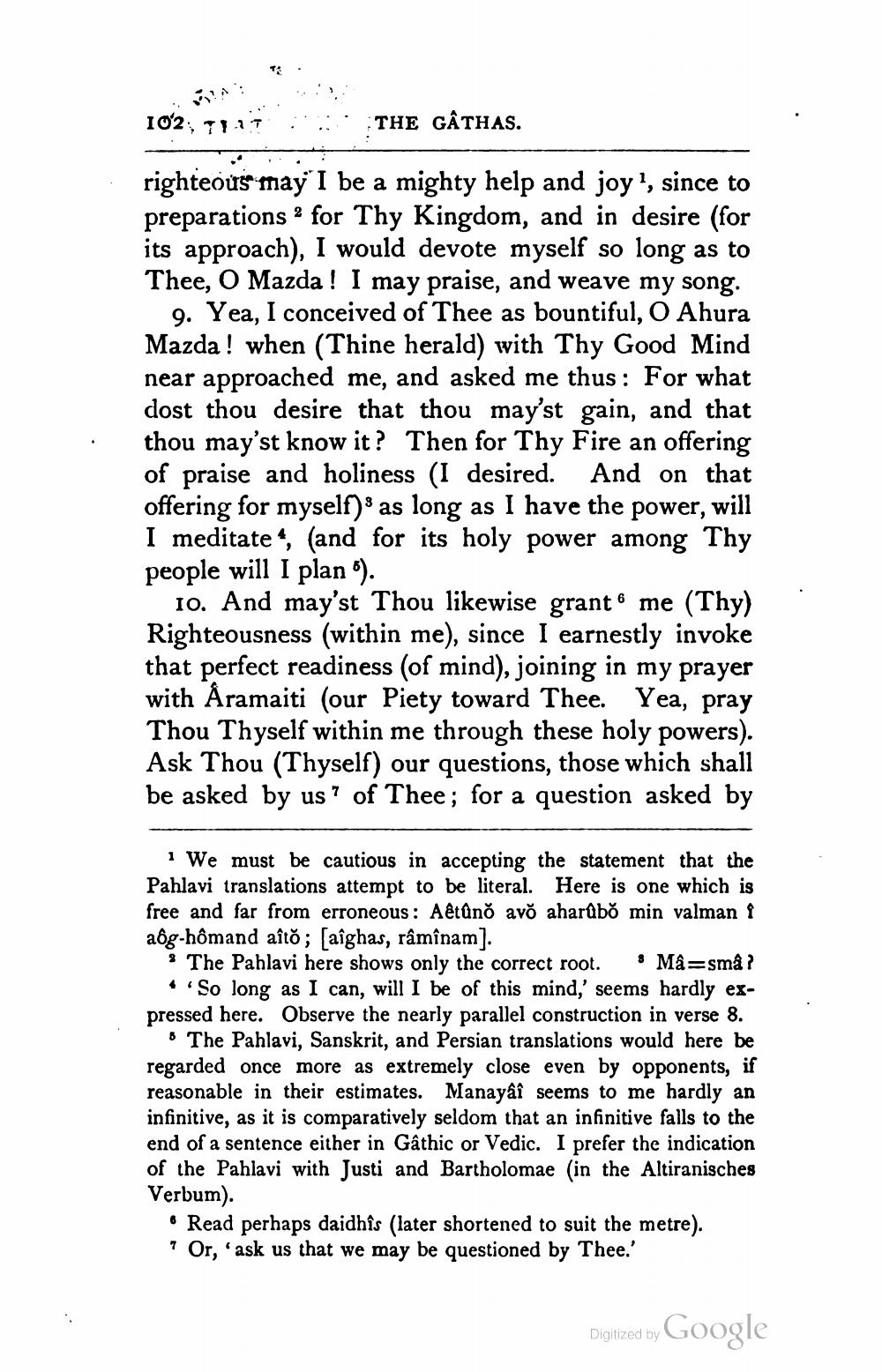________________
102 THAT
THE GÂTHAS.
righteous may I be a mighty help and joy', since to preparations 2 for Thy Kingdom, and in desire (for its approach), I would devote myself so long as to Thee, O Mazda! I may praise, and weave my song.
9. Yea, I conceived of Thee as bountiful, О Ahura Mazda! when (Thine herald) with Thy Good Mind near approached me, and asked me thus: For what dost thou desire that thou may'st gain, and that thou may'st know it? Then for Thy Fire an offering of praise and holiness (I desired. And on that offering for myself): as long as I have the power, will I meditate *, (and for its holy power among Thy people will I plan ).
10. And may'st Thou likewise granto me (Thy) Righteousness (within me), since I earnestly invoke that perfect readiness (of mind), joining in my prayer with Åramaiti (our Piety toward Thee. Yea, pray Thou Thyself within me through these holy powers). Ask Thou (Thyself) our questions, those which shall be asked by us? of Thee; for a question asked by
1 We must be cautious in accepting the statement that the Pahlavi translations attempt to be literal. Here is one which is free and far from erroneous : Aêtûno avó aharůbě min valman i aôg-hômand aîto; faîghas, râmînam).
3 The Pahlavi here shows only the correct root. Må=små?
• 'So long as I can, will I be of this mind,' seems hardly expressed here. Observe the nearly parallel construction in verse 8.
The Pahlavi, Sanskrit, and Persian translations would here be regarded once more as extremely close even by opponents, if reasonable in their estimates. Manayâî seems to me hardly an infinitive, as it is comparatively seldom that an infinitive falls to the end of a sentence either in Gâthic or Vedic. I prefer the indication of the Pahlavi with Justi and Bartholomae (in the Altiranisches Verbum).
* Read perhaps daidhîs (later shortened to suit the metre). ? Or, 'ask us that we may be questioned by Thee.'
Digitized by Google
Digitized by




